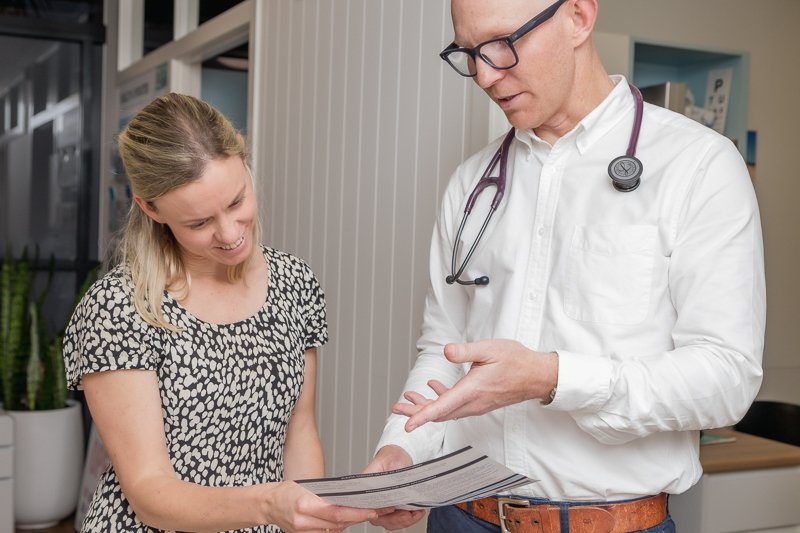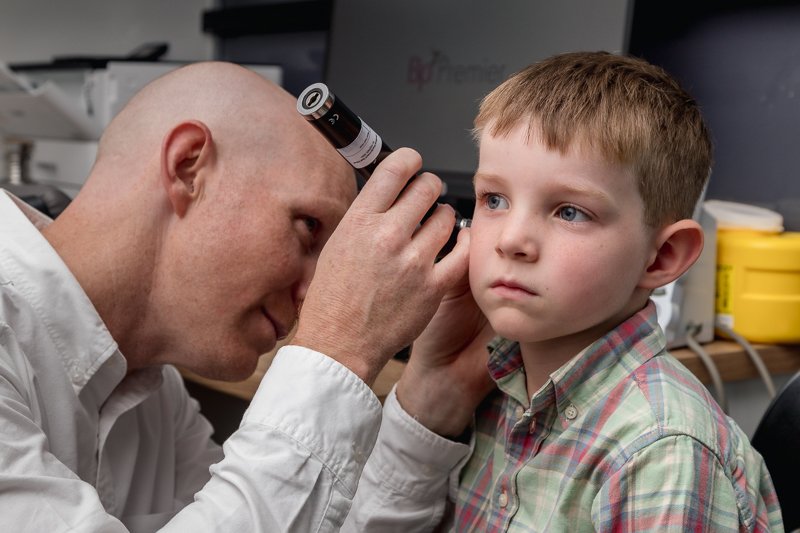Shifting your mindset is always hard. Right now, during ‘Cold and Flu’ season, we all have to shift our mindset from ‘It’s just a cold’ to ‘I need to get a COVID test and stay home until I am well’.
Symptoms of COVID-19 include fever, cough, sore throat, runny nose, and fatigue. As you can see, these are very similar to the symptoms of a Common Cold or Influenza. Without a test, there’s no way to know which illness you have, and the implications for you and your community.
Widespread testing is the best way we have to stay on top of COVID-19 while enjoying eased restrictions. So, if you have any Cold or ‘Flu’ symptoms, please stay at home until you are better and contact your GP to get a COVID-19 test.
COVID-19 and Self-Quarantine
You’ve got a cough, a sneeze and a runny nose – it’s just a cold, right? There’s no need to cancel your plans, is there?
When you got a cold last year, you probably just powered on through despite your thumping headache and snotty nose. Not giving in was almost a badge of honour, albeit the wrong thing to do.
Things are different now, though. This year’s cold and flu season comes with extra complications thanks to COVID-19. You simply cannot ignore any coronavirus symptoms, even if it’s most likely that you’ve simply got a cold.
Why We Need Widespread Testing
Right now, there are very few cases of COVID-19 in Queensland. That can change alarmingly quickly though as Melbourne’s experience shows.
Widespread testing of anyone with any symptoms of COVID-19 is our best chance to stay on top of the virus while enjoying the social and economic benefits of eased restrictions. We only know there is NO community transmission if we KEEP testing.
Which Symptoms Matter?
You’ve probably heard this a thousand times by now but, to recap, COVID-19 symptoms can include:
● A temperature over 37.5 degrees
● A cough
● Sore throat
● Running nose
● Fatigue
● Shortness of breath
● Loss of taste and smell.
What Should I Do If I Get COVID-19 Symptoms?
If you have any cold and flu symptoms then you should self-quarantine and be tested for COVID-19. That’s the case even if you only have one or two symptoms and even if they’re very mild. If in doubt, call your GP for further advice.
Self Quarantine
This boils down to a simple message – if you’re sick, stay home. And that’s the 2020 definition of sick where we take every sneeze seriously.
If you are at all unwell, then don’t go to work, don’t go to the shops, don’t visit friends or family. Just stay home.
Self-isolation is hard and may feel like a overreaction to something as ordinary as a runny nose or sore throat.
Incidentially we’re seeing over 90% LESS Influenza this year as people take the stay at home when unwell advice – this effectively proves that this simple process is very powerful, and can be just as powerful for COVID-19.
With COVID, you can be contagious before you show symptoms though you’re most likely to infect others after the initial symptoms appear. Because those symptoms are often mild, you may continue to go about your usual business, interacting with many people and passing the virus on to them.
That’s why we have to be vigilant about all cold and flu symptoms.
Call Your Doctor
The next step is to call your GP or call the National Coronavirus Helpline on 1800 020 080 for advice on whether and how to get tested for COVID-19.
Getting Tested
COVID-19 testing involves taking swabs from inside your nose and throat. If you’re coughing up mucus, then you may be asked to provide a sample of that too. The nasal swab can be uncomfortable but shouldn’t be painful. In any case, it’s over quickly.
There are testing centres across Queensland in various locations such as:
● Some GP clinics
● Commonwealth Respiratory Clinics
● Hospitals.
● Pathology collection centres
Your doctor or the National Coronavirus Helpline can tell you the best places to be tested near you.
The actual COVID-19 pathology test is government rebated, you will not be out of pocket. You may still need to pay the usual consultation fee to see your GP however Phone Consultations are usually fully Medicare rebated, so again, no cost to you.
Self-Quarantine (Again)
After the test, you should go straight home and self-isolate until you get your COVID-19 test results. COVID-19 tests are processed quickly and you’ll usually receive the results within 24-48 hours.
Do not stop for a coffee on the way home, do not pop into the supermarket for supplies, do not pick up your dry cleaning. Just go home.
Ask your doctor, COVID-19 tester or the National Coronavirus Helpline for advice about whether or not the people you live with need to stay home too. The advice varies a bit depending on your likelihood of testing positive based on your symptoms and history.[1]
Proving hard to find a definite answer about what family members should do. This page says they do not need to be isolated - https://www.health.qld.gov.au/news-events/news/testing-coronavirus-covid-19-queensland-how-where-symptoms-adult-child but the brief said they should stay home too.
Next Steps
If you’re told you do not have COVID-19 and your symptoms have disappeared then you’re free to go back to your usual life.
If you’re told you do not have COVID-19 BUT you’re still symptomatic then please stay at home until your symptoms disappear. It’s good that you don’t have COVID-19 but you do still have something – likely another Respiratory Virus. If you go out into the community, you’ll spread that virus. That means other people will develop cold and flu symptoms and have to be tested for COVID-19. So, please stay home until you’re better. This process works.
If you’re told you do have COVID-19 then you’ll be given detailed instructions about what to do next.
It’s (Probably) Just a Cold, Though!
Yes, it (probably) is. Adults catch 2-4 colds each year while kids catch 5-10, making almost every month snotty.
As of 27July, 3.5 million COVID-19 tests had been performed in Australia. Less than 1% came back positive. So, yes, your COVID-19 test is most likely to be negative.
The trouble is, without a test, there’s no way to be sure. And, if you’re wrong and you have somehow contracted COVID-19, you risk spreading it to other people.
COVID-19 can take off like wildfire. As outbreaks in Victoria and NSW show, one case can quickly turn into 10, 20, 50 or 500 cases.
It’s your responsibility to stop that by obeying the rules on self-quarantining and testing.
How Can Peregian Family Medical Centre Help?
As doctors, we’re well-informed about COVID-19, including the latest guidance from Queensland Health.
If you are showing cold and flu symptoms or are worried about your health in any way, then please call us on 5471 2100 for advice on what to do next.
Disclaimer
All information is general in nature. Patients should consider their own personal circumstances and seek a second opinion.






